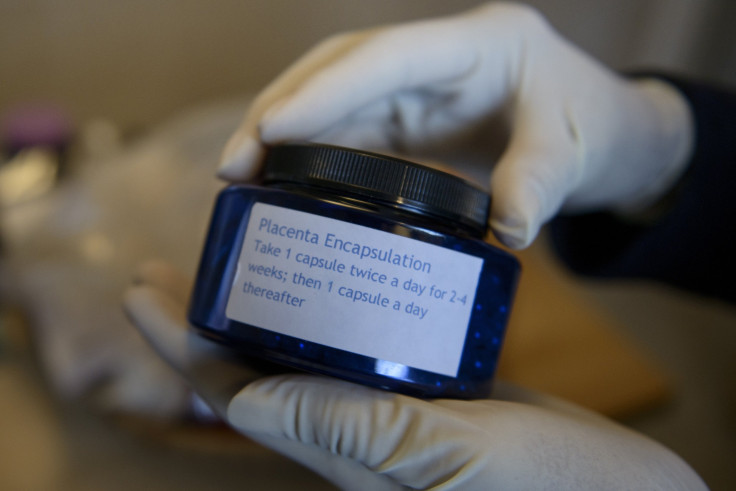Placentophagy: Mississippi Woman Tries Eating Her Placenta After Giving Birth, But Has To Go To Court First

After giving birth to her child, Jordan Thiering is planning on consuming her own placenta, the organ that develops in a woman’s uterus during pregnancy and connects to the fetus’ umbilical cord. Placentas provide babies with nourishment during their time in the womb, and Thiering believes it can do the same for her after childbirth, when it’s removed from her body.
She plans on putting it into a pill and taking it as a daily supplement. There’s only one problem: In Mississippi, she had to take her request to court. After her request was denied by the hospital, due to their defining a placenta as “medical waste” and that she was a “third party” to her placenta, Thiering went to the Rankin County Chancery Court to petition for her right to consume what she considers rightfully hers.
“If I gave birth to my baby and then I give birth to my placenta, do you own my baby, too?” she told The Clarion-Ledger. “Do I have a third party to my own child? Well, of course not. So then why am I the third party to my own body part? It just doesn’t make sense.”
The hospital noted that “no hospital or other facility may release non-infectious medical waste (including placental tissue) without there first having been obtained by a court order, or other judicial mandate, which will assure proper disposal by the release.”
Thiering believes that the act of eating her own placenta, known as placentophagy, would provide her with essential nutrients and health benefits after giving birth. “Taking a multivitamin is something that I do regularly anyway so putting it in a gelatin capsule just seems so simple and if it’s going to benefit me and my husband, my baby, I might as well,” Thiering told The Clarion-Ledger. “The benefits just seem to outweigh any sort of negative. I’m really excited about it. If it does nothing, it does nothing, but it’s the whole perspective of being able to kind of have what I want, rightfully so.”
Plenty of animal mothers eat their placentas after giving birth, and some tribes throughout the world still do so as well. And while it’s not common in the Western modern world, Thiering is not the first woman in America to plan to eat her own placenta after giving birth. Most hope to garner some level of supposed health benefits from the practice — like improved breast milk flow, release of the hormone oxytocin which reduces postnatal stress, and other hormonal effects. Some parents have even shredded the placenta into a smoothie meant for both the mother and father, believing it to be an elixir that provides special nutrients to new parents.
These health benefits remain unfounded, however. In 2015, a large scientific review of literature regarding placentophagy concluded that eating your own placenta didn’t provide any of the claimed benefits that have been circulating in recent years. In other words, it probably won’t help you at all to consume your placenta — and some women who ate their own placentas have even regretted it. But Thiering still believes women should have a right to if they want to.
Fortunately for her, the court granted her the order. “It’s your body and no matter what women want to do with it, it’s their right to have it,” Thiering told The Clarion-Ledger.



























